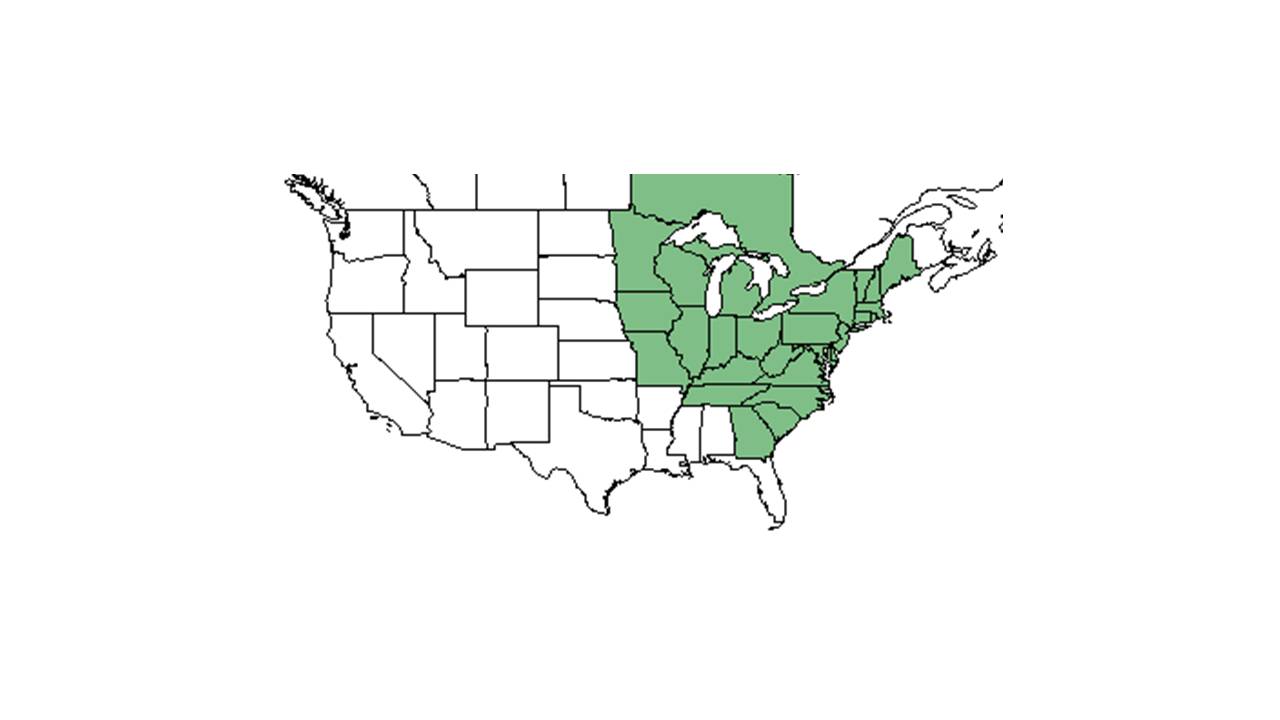Difference between revisions of "Aureolaria pedicularia"
KatieMccoy (talk | contribs) (→References and notes) |
KatieMccoy (talk | contribs) (→Ecology) |
||
| Line 24: | Line 24: | ||
==Distribution== | ==Distribution== | ||
==Ecology== | ==Ecology== | ||
| − | It is a root parasite on red and black oaks | + | |
| + | It is a root parasite on red and black oaks and cannot survive without an attachment to a host (Musselman et al. 1969). | ||
| + | |||
===Habitat=== <!--Natural communities, human disturbed habitats, topography, hydrology, soils, light, fire regime requirements for removal of competition, etc.--> | ===Habitat=== <!--Natural communities, human disturbed habitats, topography, hydrology, soils, light, fire regime requirements for removal of competition, etc.--> | ||
In the Coastal Plain in Florida, ''A. pedicularia'' has been found in a slash pineland (FSU Herbarium) and is considered a dominant species in sand dunes (Leicht-Young et al. 2009) | In the Coastal Plain in Florida, ''A. pedicularia'' has been found in a slash pineland (FSU Herbarium) and is considered a dominant species in sand dunes (Leicht-Young et al. 2009) | ||
Revision as of 10:25, 2 November 2015
| Aureolaria pedicularia | |
|---|---|

| |
| Scientific classification | |
| Kingdom: | Plantae |
| Division: | Magnoliophyta - Flowering plants |
| Class: | Magnoliopsida - Dicotyledons |
| Order: | Scrophulariales |
| Family: | Scrophulariaceae |
| Genus: | Aureolaria |
| Species: | A. pedicularia |
| Binomial name | |
| Aureolaria pedicularia ((L.) Raf. | |

| |
| Natural range of Aureolaria pedicularia from USDA NRCS Plants Database. | |
Common Name: Fernleaf Yellow False Foxglove
Contents
Taxonomic notes
Description
Distribution
Ecology
It is a root parasite on red and black oaks and cannot survive without an attachment to a host (Musselman et al. 1969).
Habitat
In the Coastal Plain in Florida, A. pedicularia has been found in a slash pineland (FSU Herbarium) and is considered a dominant species in sand dunes (Leicht-Young et al. 2009)
Phenology
Seed dispersal
Seed bank and germination
Germination occurs after cold treatment at 4.5 degrees Celsius for 5 months.[1]
Fire ecology
Pollination
Use by animals
Diseases and parasites
Conservation and Management
Cultivation and restoration
Photo Gallery
References and notes
Florida State University Robert K. Godfrey Herbarium database. URL: http://herbarium.bio.fsu.edu. Last accessed: October 2015. Collectors: Robert K. Godfrey. States and Counties: Florida: Wakulla. Compiled by Tall Timbers Research Station and Land Conservancy.
Leicht-Young, S. A., N. B. Pavlovic, et al. (2009). "A comparison of seed banks across a sand dune successional gradient at Lake Michigan dunes (Indiana, USA)." Plant Ecology 202: 299-308.
- ↑ Musselman, L. J. (1969). "Observations on the life history of Aureolaria grandiflora and Aureolaria pedicularia (Scrophulariaceae)." American Midland Naturalist 82: 307-311.